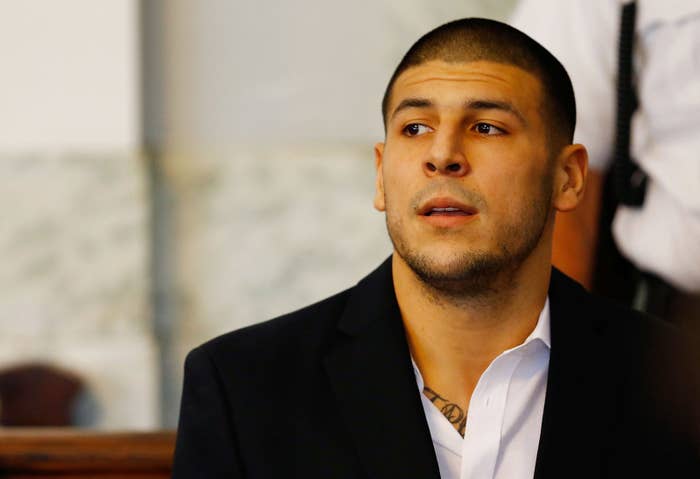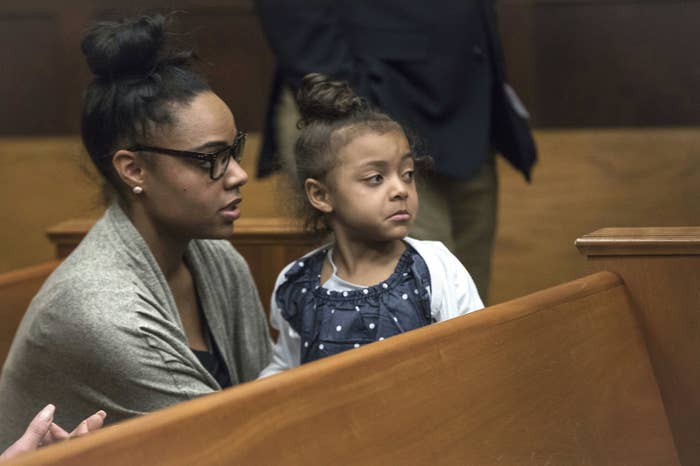
Aaron Hernandez, the former NFL player who killed himself in prison after being convicted of murder, suffered from stage 3 chronic traumatic encephalopathy, the degenerative brain disease known as CTE that is associated with athletes who receive repeated blows to the head, his family's lawyer said Thursday.
Attorney Jorge Baez said researchers determined Hernandez had “the most severe case they had ever seen in someone of Aaron’s age."
Hernandez was 27 when he hanged himself in a Massachusetts prison cell in April. The former New England Patriots player was serving a life sentence for the 2013 killing of semi-pro football player Odin Lloyd, the boyfriend of his fiancé's sister.
Hernandez's fiancé, Shayanna Jenkins-Hernandez, filed a lawsuit in Massachusetts federal court against the Patriots and the NFL on Thursday, claiming the football organizations knew about the risks of CTE.
"Aaron had stage 3 CTE usually seen in players with a median age of death of 67 years," the lawsuit reads.
"By the time Aaron entered the NFL, in 2010, Defendants were fully aware of the damage that could be inflicted from repetitive impact injury and failed to disclose, treat, or protect him from the dangers of such damage," the lawsuit reads.
The lawsuit alleges Hernandez "succumbed to the symptoms of CTE" when he killed himself, depriving the couple's daughter of companionship with Hernandez.
A spokesperson for the NFL said they have not seen a copy of the lawsuit and cannot comment.

Hernandez is one of the youngest former NFL players to have been found to have CTE — a degenerative brain disease that can only be diagnosed after a person's death.
In July, researchers at Boston University released results of a study, which showed that they found CTE in the brains of 110 of the 111 former NFL players they studied.
Baez, the attorney, said Hernandez's brain was examined by Dr. Anne McKee, a professor of pathology and neurology at Boston University.
During Thursday's press conference, Baez said that the former football player's family had noticed some behavior changes in him, but he said it would have been impossible for the player's fiancé to attribute the changes to brain disease versus "someone who is simply agitated."
"She doesn't have training in brain injuries," Baez said of Jenkins-Hernandez. "It's not something she would have have been able to pick up on."
The New England Patriots did not immediately respond to requests for comment.
CORRECTION
Anne McKee's name was misspelled in a previous version of this story.
